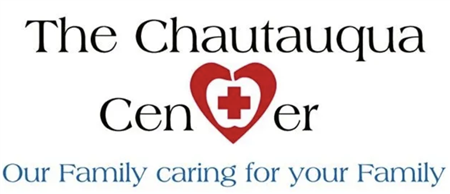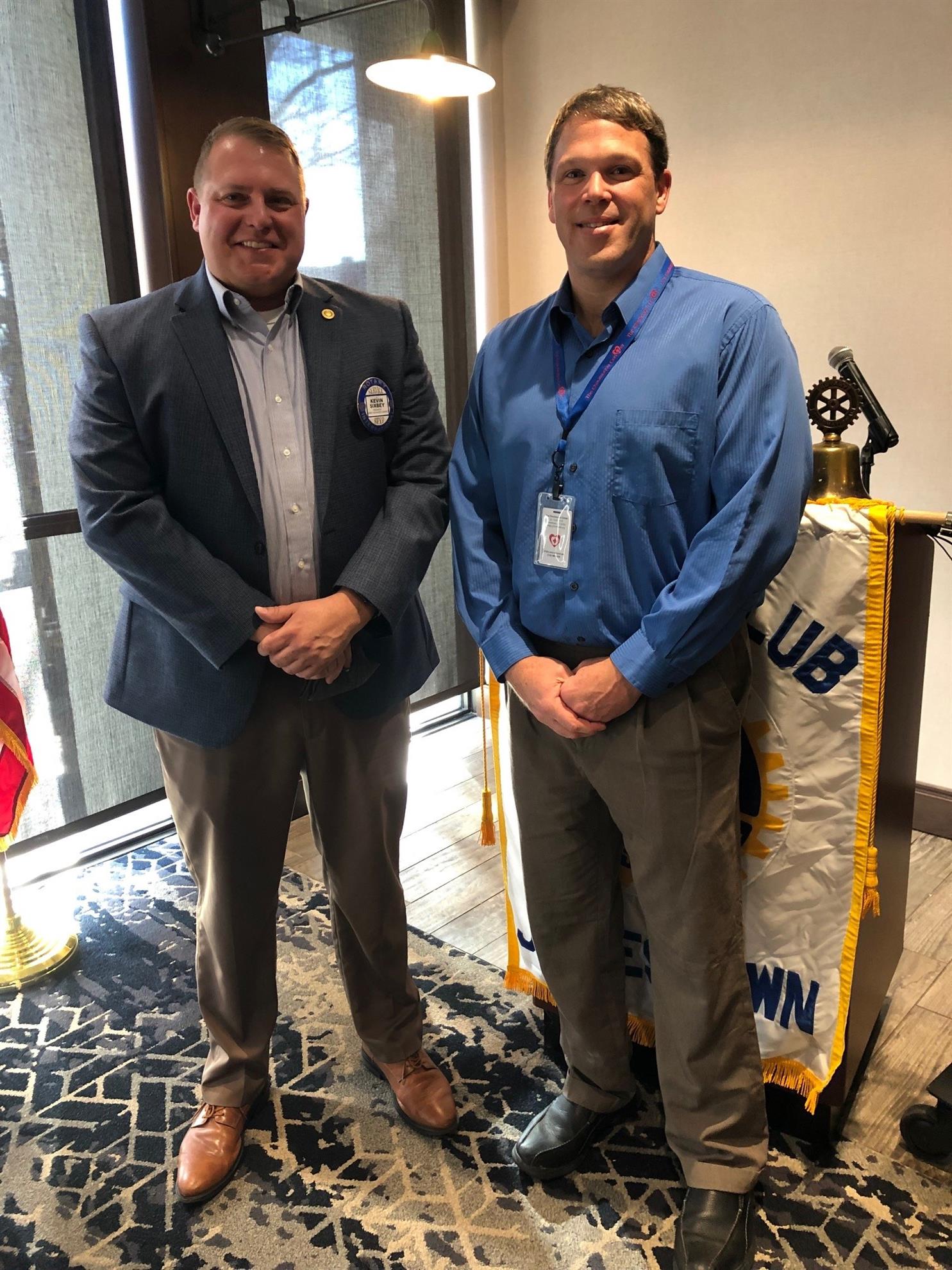
Stacy Hannon introduced Michael Pease, CEO of The Chautauqua Center (TCC), a federally qualified health center in the county. He holds bachelor’s and master’s degrees in health care administration and has worked for the TCC for 12 years, since its inception.

He works to develop, implement, and evaluate a full range of services and enjoys change management. A long-time resident, he lives in Cherry Creek with his wife of 17 years.
History of CC
In 2009 the Chautauqua County Health Network applied for a federal health center. Ann Abdella and Tory Irgang were instrumental in this. The County was one of the highest need areas without a federal health center. In 2012 the CCHN received funding, and the Center saw the 1st patient in Dunkirk in 2013. Today there are over 160 staff members and 15,000 individuals have been served since the opening. Primary care is the core, but services also include women’s health, oral health, behavioral health, substance abuse, care coordination and a newly opened a pharmacy. The Center is open to all people in the community, whether or not they have insurance. In Jamestown, many new patients are privately insured, medicare aged.
In Jamestown, TCC is located on Institute Street with a new building. The health center uses 50,000 sq ft. and there is space for partners, including Office of the Aging and others who will be coming.
The health center focuses on recruiting local providers, since they are most likely to stay. There are 8 primary care doctors and 7 are from the local area. In Jamestown they include Rudy Mueller, Kristina Brown, Paul Robbins pediatrician, Betsy Kidder. Right now they are averaging 130 new patients a week between Dunkirk and Jamestown.
Q: Do you have Physical or Occupational Therapy?
Not currently, but due to the financial stresses on small businesses there is an opportunity for some consolidation. TCC is also continuously trying to bring in specialties not adequately represented in the area, such as dermatology or nephrology. It is also important to note that federally qualified medical centers must have a Board of Directors and half of them must be patients. TCC has 12 Board members and 10 are patients.
Q: What are some of the challenges regionally?
1. Delayed care is a big one. Chronic disease that didn’t get the attention that was needed, such as diabetes, hypertension etc. 2. There is also a rise in TB and other diseases that are normally under control because of delayed immunization. 3. Problems with lead. 4. Finally, because of COVID and the mandates, losing health care workers: nurses, dentists, hygienists, social workers. Michael guesses TCC has lost approximately 10% of its employees to other fields.
Q: How was the Center perceived by other providers when it opened? Was it perceived as unfair competition?
There was one practice that was very vocally opposed initially.
Q: What is the #1 reason recruiting is unsuccessful?
Significant other. You really must find 2 jobs and satisfy two people. One of the reasons they tend to come to The Chautauqua Center is because of the incentive of National Health Services Corp. TCC has the highest score (highest need), meaning education loans get paid off if they stay 3 years. Then, if they don’t have local ties, they leave, which is why TCC is focusing on finding people with a local connection, so they will stay.